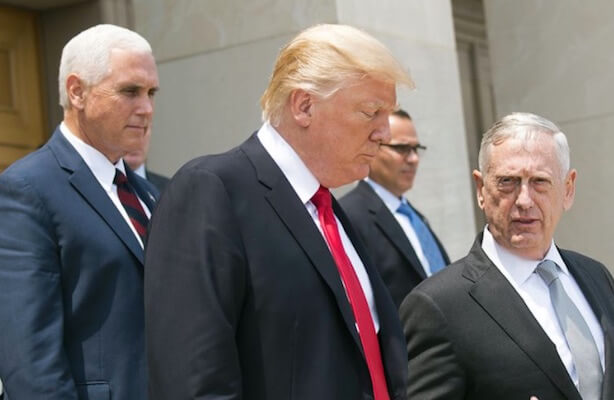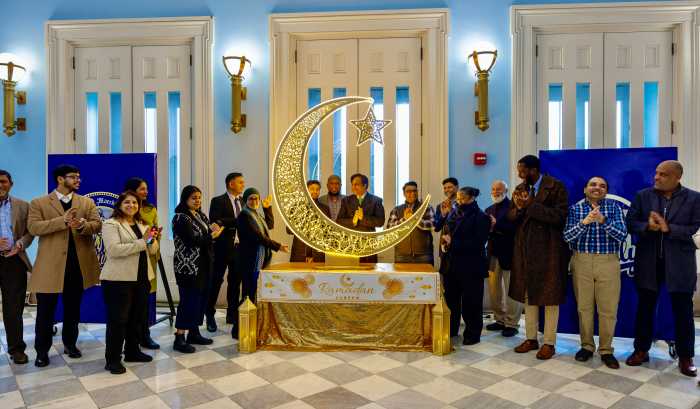Two-thirds of American service members who responded to a survey funded entirely by the Department of Defense support transgender people serving in the US military.
The report, released February 18 by the science and technical research publisher Springer, found that 66 percent of 486 respondents from all branches of the military said they support transgender troops, demonstrating rank-and-file opposition to the Trump administration’s ban on trans people in the military. The results also shattered President Donald Trump’s position, explained in 2017 by former White House Press Secretary Sarah Huckabee Sanders, that the presence of transgender service members “erodes military readiness and unit cohesion.”
The report furthermore revealed that women, gay, lesbian, and bisexual people, and racial minorities in the military are even more supportive of transgender service members than heterosexual white respondents. Sixty-nine and 75 percent of Black and Latinx service members, respectively, expressed support for transgender service members compared to 64 percent of white respondents, while 82 percent of lesbian, gay, or bisexual respondents said they support trans service members compared to 57 percent of straight respondents.
“That speaks to the importance of diversity in the armed forces, and there have been some concerted efforts to increase representation in the military,” said one of the study’s authors, Dr. Ian Holloway, who is a licensed clinical social worker and an associate professor of social welfare at the UCLA Luskin School of Public Affairs.
While it might seem unusual for the military to fund a survey that challenges the current administration’s policy, Donald Trump and his Pentagon leaders actually had nothing to do with it. The survey was commissioned by the Obama administration, which paid $1.8 million for it in an apparent bid to further validate its decision to do away with the ban on transgender troops by proving they do not pose issues with morale in the military. Even then, such a high level of support for trans service members was not anticipated.
“In terms of our hypothesis about acceptance, we did expect to find high levels of acceptance — but I don’t think we expected it to be this high,” Holloway added.
One important factor in the survey was the breakdown of respondents by sexual orientation. A disproportionately high number of lesbian, gay, and bisexual people responded, which skewed the results slightly higher than otherwise because queer people tend to show greater acceptance for transgender rights than their straight cisgender peers. In total, 295 respondents were straight, 187 were lesbian, gay, or bisexual, and four did not disclose their sexual orientation. However, the study’s authors stressed that they were not necessarily seeking to draw a pool of respondents who reflected the exact demographics of the military.
Another notable factor is the timing of the research. The survey answers were gathered between August of 2017 — which was one month after Trump’s July 2017 tweet first announcing the ban — and March of 2018. The policy, later fleshed out by then-Defense Secretary James Mattis, officially went into effect on April 12 of last year, but as Gay City News reported last June, its implementation was bungled and there were inconsistencies seen across different branches of the armed forces.
The findings were hailed by the Palm Center, a San Francisco-based LGBTQ-focused research institute.
“This research, which was supported by the Pentagon itself, gives the lie to the claim that transgender Americans disrupt the cohesion or readiness of the US military,” Aaron Belkin, director of the Palm Center, said in a written statement. “If the military really cares about cohesion, it should read the research it funds or stop wasting taxpayer money.”
The findings were consistent with previous polls asking Americans about their views surrounding inclusive policies for transgender service members. A series of five nationwide polls conducted by different pollsters last year showed support for transgender service members ranging from 59 percent to 71 percent, with an average of 67 percent.



































